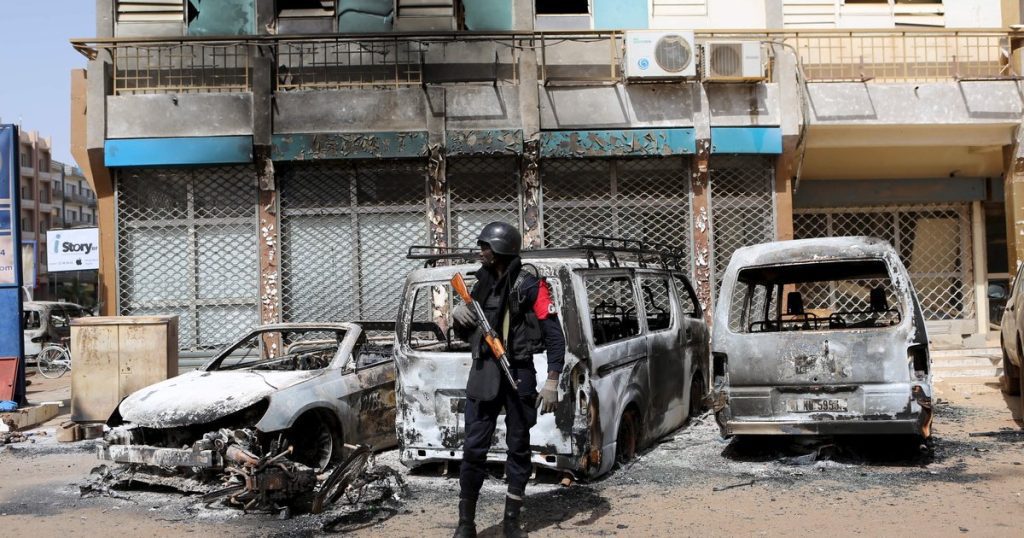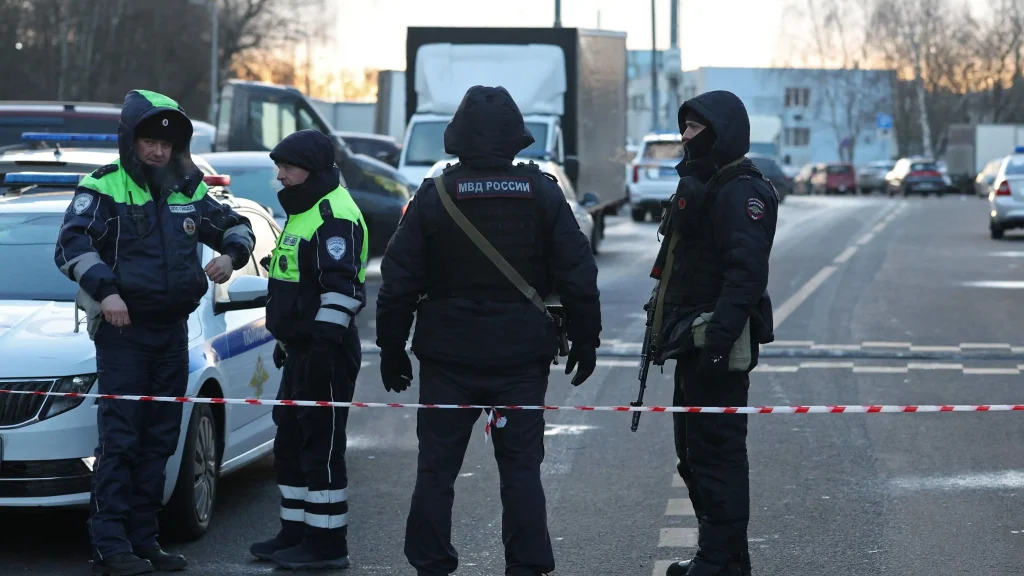At least 31 soldiers and three army helpers were killed on Monday in an attack by suspected jihadists in northern Burkina Faso, the army said on Tuesday. Security sources also told AFP that a separate attack had left dozens more dead.
The army said a supply convoy, escorted by military units, was returning from Djibo, a town that has been under siege by jihadists in the Sahel region. The convoy was ambushed in Namsiguia, located in the Centre-Nord region.
The attack was described as “particularly violent,” and despite the soldiers fighting back, the attack resulted in heavy losses. The provisional report showed 31 soldiers and three Volunteers for the Defense of the Homeland (VDP), who are civilian army helpers, were killed. The army also mentioned that about ten soldiers were still missing, and reinforcements had been sent to find them.
The army added that over 40 terrorists were “neutralized” during the fighting.
The military did not comment on another attack that also happened on Monday in the same region. Security sources told AFP that this attack killed dozens, most of them VDP members.
The village of Noaka in the Centre-Nord region was targeted by terrorist groups, mainly focusing on VDP fighters. A local VDP official said, “We lost many men in Noaka, and several were injured.” He also said some fighters were still missing.
A local resident described the attack as a “massacre,” estimating that around 30 VDP members were killed, with many others wounded. He mentioned that the fighters, supported by the army, did manage to cause significant losses to the attackers, recovering motorcycles and weapons.
Additionally, the local VDP leader mentioned a smaller attack that took place on Monday in Gayeri, in the eastern Komondjari province, where four army helpers were killed.
On the same day, people in Tanwalbougou, in the east, held a protest due to the rise in jihadist attacks. They demanded supplies for their area, which has been blocked off by armed groups for weeks.
Since 2015, Burkina Faso has been caught in a wave of jihadist violence that started in Mali and Niger before spreading. In the past eight years, more than 10,000 civilians and soldiers have been killed, according to NGOs, and over two million people have been forced to flee their homes.
Since September last year, Burkina Faso has been ruled by a military government, led by Captain Ibrahim Traoré, who came to power after a coup. This was the second coup in eight months.
Burkina Faso’s struggle with jihadist violence shows no sign of easing, as these latest attacks add to the growing death toll and displacement crisis. The military government, led by Captain Ibrahim Traoré, has faced enormous challenges since taking power. Despite promises to restore order and defeat the jihadists, the violence has continued to spread, affecting more areas of the country.
Many citizens are losing hope as their villages become unsafe, with armed groups blocking roads, cutting off supplies, and carrying out deadly attacks. In response, more civilians have joined the Volunteers for the Defense of the Homeland (VDP) to help the military defend their communities. However, these VDP members, who often lack proper training and equipment, are facing great danger and heavy losses.
The situation in Burkina Faso mirrors what is happening in other parts of the Sahel region, where countries like Mali and Niger are also battling the rise of jihadist groups. These groups, some linked to Al-Qaeda and ISIS, have exploited weak governments and poverty to gain power, creating chaos across borders.
International support, including aid from France and other Western nations, has not been enough to stop the violence. In recent months, Burkina Faso has shifted away from its former colonial power, France, and sought new partnerships, including closer ties with Russia. However, this change in alliances has not yet improved the security situation.
As the conflict continues, Burkina Faso’s future remains uncertain. The military government faces the difficult task of not only fighting the jihadists but also winning back the trust of a population exhausted by years of violence and instability.
Without a solution, the country risks falling deeper into conflict, with more lives lost and more people forced to flee their homes.























